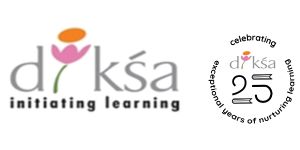The Skill
The skill of reading and writing.
For the longest time reading or books did not interest me that much. I would want to know what the book has to say, however I was never able to bring myself to read. I developed a certain avoidance to reading and books. I didn’t quite know why.
Like I had mentioned earlier, though I didn’t find reading too difficult yet I still found it to be tedious and I was slow. Copying something off the board in class would take me too long. One, I’d copy it word by word. I couldn’t read the words and chunk them together and write them down, two I’d lose the line that I was copying from and by the time I could finish the teacher would erase the board.
So I often found myself asking the person next to me to show their notebooks and my book would be left with several blank spaces to fill in. This would also leave me feeling dizzy because of having to look up and look down constantly between the board and the book. In the same way keeping up with the teacher while she was dictating was also hard. It was slightly better than board copying as it was more comfortable. But I was, still slow. This condition persisted throughout school.
Until I got myself to start reading Harry Potter one day. I didn’t understand what the fuss was all about. What is it about this book that has everyone talking? Who is Snape? Why does it sound like snake? Why are there so many characters in one book? So I started with my first book ever. The chamber of secrets. Yes I read the 2nd book and then went back to the first, I was quite surprised that I still understood what was going on. But this also got me questioning “Why is it easier to understand fiction while it takes me hours to read my text book?”
Even today I save several articles and buy different books yet half way through it I would realize that I haven’t processed anything that I’ve read so I’d go back and start again but when this happens for the 3rd or the 4th time I automatically lose interest.I almost wish I had photographic memory. And that book or article will be put off for later. But I’m not afraid or avoid reading as I used to. I just need extra energy to be able to complete it.
Looking at a book or a webpage full of text can be overwhelming sometimes. The words don’t fly like the movies portray, but to me they do become blurry and float; I wouldn’t know where to start or which line I was reading earlier. This happens episodically and it does make reading difficult. For instance even while editing these writeups I often don’t know where I had stopped so I’d go back and start reading it all over again.
Vocabulary, spelling, comprehension and reasoning are of key focus in remedial. Why? Because dyslexia being a language processing issue makes it harder for an individual to put thoughts into words. It gets difficult to grasp the core idea and make connections and apply the concepts. Everything gets registered in the form of visuals. Anytime anything is being explained, it all runs like a live action movie in your head. So how does one translate this movie into script? How do you figure out what these visuals are trying to portray? That’s where vocabulary and spelling play a role.
For instance if you were to look at a chapter in your history textbook the events explained in the chapter would play out vividly in the head of a dyslexic. Akbar and Aurangzeb may look different from each other and they are able to see the picture so clearly. Events do get registered to a certain extent however putting a name to the character and date to the event becomes difficult and sequencing them becomes difficult. Sequencing the events and putting them in order is a tough feat. Remembering names or telling the difference between the 18th and 19th century becomes hard.
Similarly the periodic table in chemistry or the depth and location of different seas in geography all these involve labels and numbers which are difficult to picturize. Exercises like quote from memory, memorizing poems and understanding abstract concepts that are portrayed in the poems become difficult to grasp. If processing is a huge task, then to get another person to understand that you’ve understood is even tougher. So any concept newly introduced to us at Diksa is always followed by everyday examples and the associated vocabulary. So it was much easier to relate. Though I did not face too many challenges in reading it still required a lot of effort.
I can’t imagine writing the way I am right now had it not been for the strategies that were taught at diksa.
